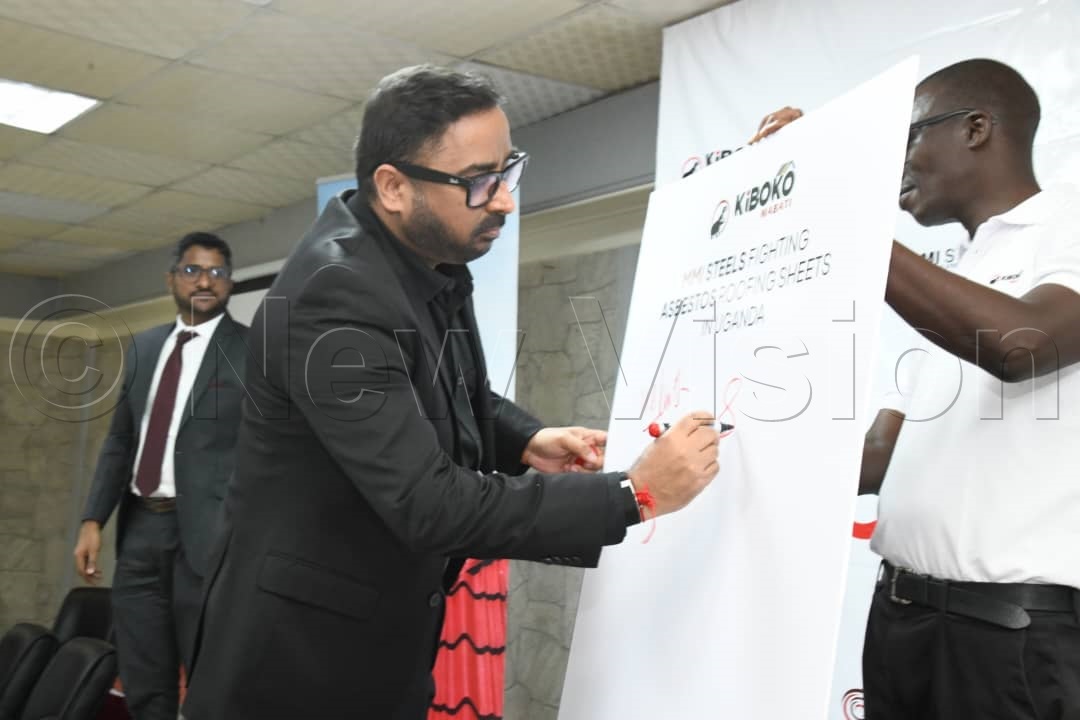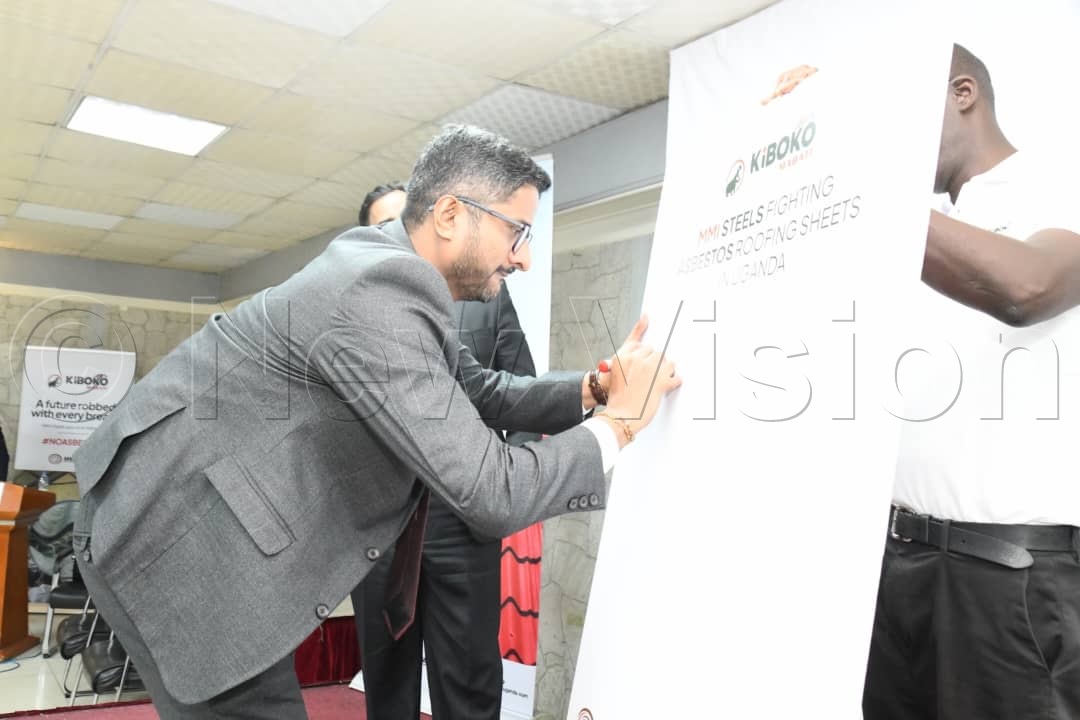Uganda govt partners with private sector to kick out asbestos roofs
The health risk of asbestos is prolonged exposure, putting individuals at risk of lung cancer called mesothelioma, says Dr James Kafeero, a medical officer at the Uganda Cancer Institute.
During the launch of No asbestos campaign in Uganda (L-R): Santosh Gumte, MD of Plascon, Heramb Kumthekan, CEO MMI steel, Sylvia Nakami, ED, Rays of Hope Hospice Jinja, Dr James Kafeero, Cancer Public Health Specialist, Uganda Cancer Institute, Eng. Doreen Matovu Lwanga from MoES and Dr Didacus Nihamye, Health Geographer, Ministry of Health. (Credit: Mpalanyi Ssentongo)
______________
Asbestos is a material used in roofing sheets, water pipes, insulation and ceiling boards. It is made up of tinny, invisible fibres that cannot be seen, tasted or smelt. Upon inhalation, the fibres lodge on the lining of the lungs, mucous membranes in the stomach, thereby causing deadly diseases such as lung cancer, with the commonest being Mesothelioma, which is rare and aggressive.
The health risk of asbestos is prolonged exposure, putting individuals at risk of lung cancer called mesothelioma, says Dr James Kafeero, a medical officer at the Uganda Cancer Institute. 
Dr James Kafeero, a medical officer at the Uganda Cancer Institute. (Credit: Mpalanyi Ssentongo)
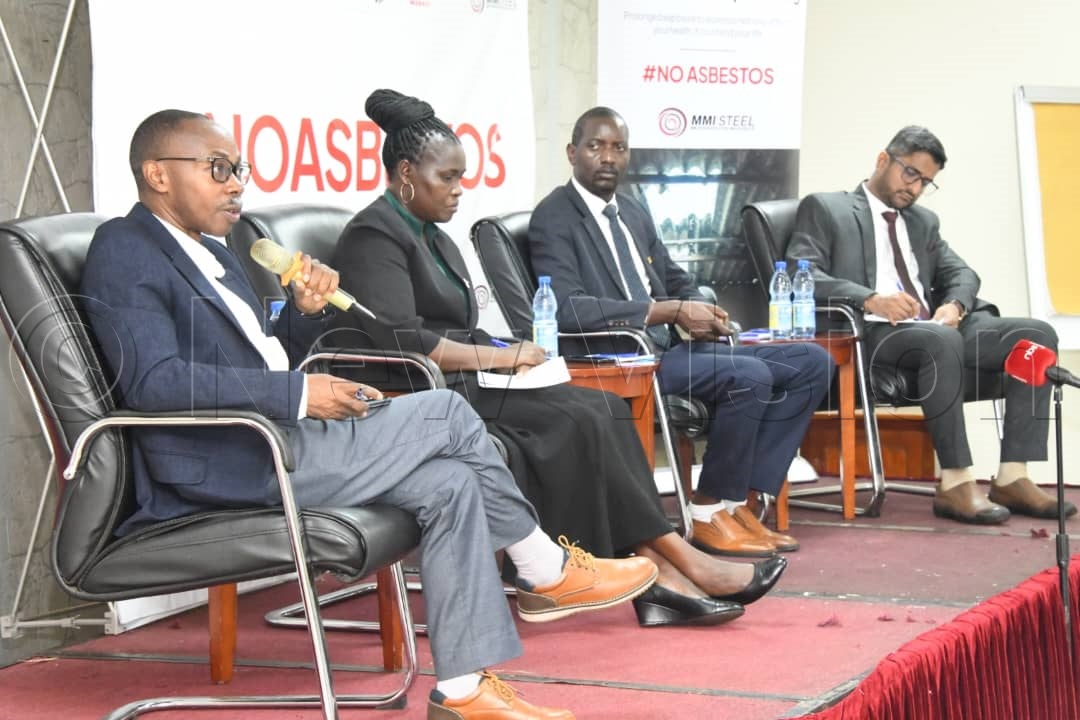
Panel discussion: (left to right) Dr Didacus Nihamye, Health Geographer, Ministry of Health, Sylvia Nakami, Executive Director, Rays of Hope Hospice Jinja, Dr James Kafeero, Cancer Public Health Specialist, UCI and Heramb Kumthekan, the CEO of MMI steel. (Credit: Mpalanyi Ssentongo)
Often affected patients present with symptoms such as difficulty breathing, coughing blood, fatigue or getting tired very fast, he noted.
The worrying bit is that the cancer is not easy to treat, and its five-year survival rate is less than 20%.
In the bid to eradicate the negative impact of asbestos, there are laws and regulations that govern the ban on the use of asbestos.
The Health Geographer at the Ministry of Health, Dr Didacus Namanya, noted that the Environmental Health and National Environment Act gives guidance on how we should stop the use of asbestos.
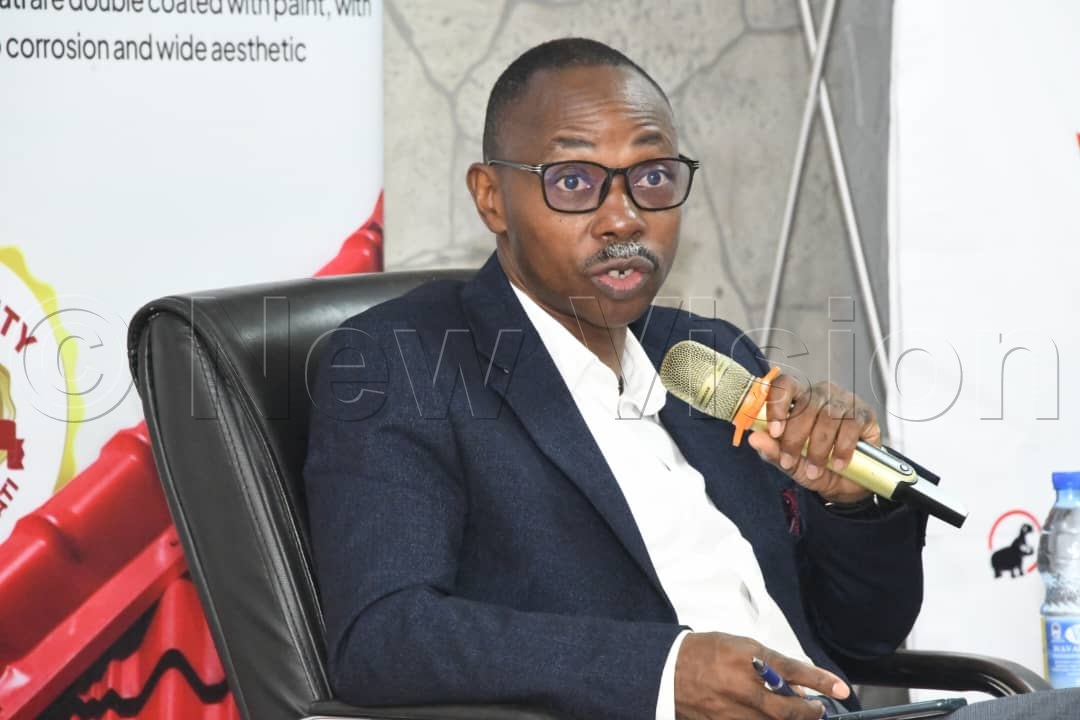
Dr Didacus Namanya during the panel discussion. (Credit: Mpalanyi Ssentongo)
In addition, there is a public health act which has been revised. “We are developing regulations and guidelines to guide the public, health workers, and communities on how to prevent asbestos exposure,” Namanya said.
He was speaking during the launch of the “No Asbestos” campaign under the theme: “40 years of shelter, 40 years of exposure” at Hotel Africana on August 27, 2025, Wednesday. Several manufacturers of roofing material attended the campaign launch.
The Chief Executive Officer at MMI Steel, Heramb Kumthekar, said that in Uganda and asbestos has been widely used for decades because of affordability. Although the sale of asbestos sheets has drastically gone down, the sheets are still seen in government buildings, hospitals, public schools, and police housing quarters.
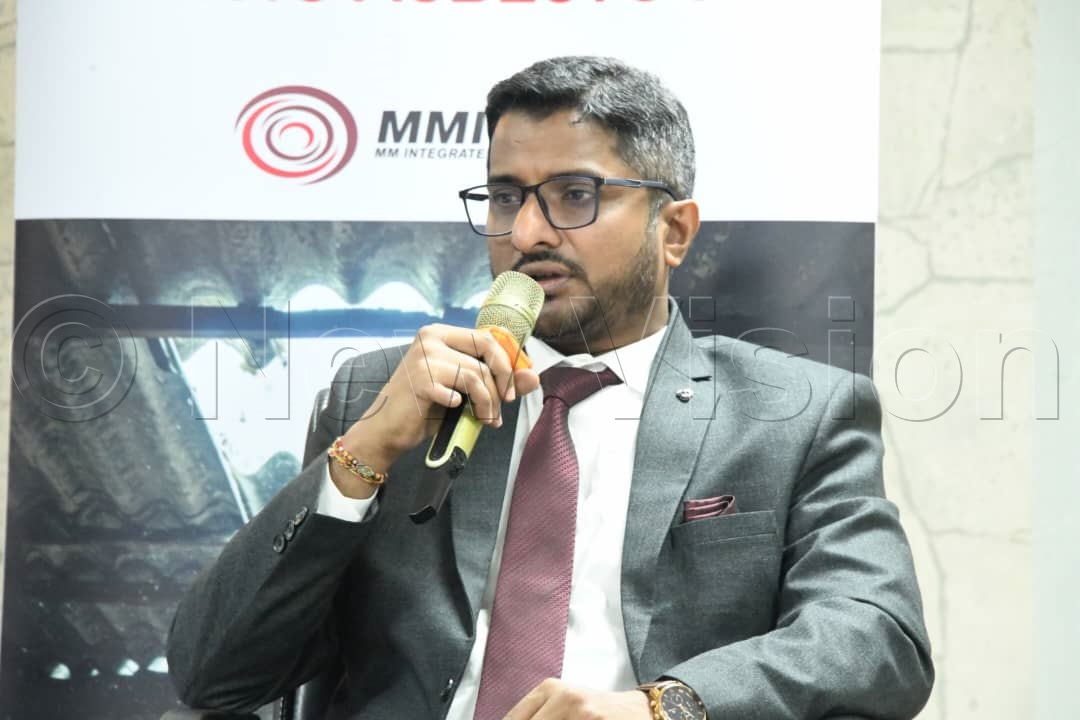
The Chief Executive Officer at MMI Steel, Heramb Kumthekar. (Credit: Mpalanyi Ssentongo)
Sadly, the majority of people do not know that asbestos fibres can cause long-term disease, such as life-threatening cancer.
In this regard, Kumthekar said that the agency has embarked on the campaign, given that the cure for cancers related to the use of asbestos lies in sensitising the public on the dangers.
Notably, MMI Steels Uganda, through its premium roofing brand Kiboko Mabati, has been at the forefront of replacing hazardous asbestos roofing in Uganda’s public institutions with a focus on improving public health and safety, especially for children and frontline workers.
It also made significant contributions to key schools and health facilities across the country. At Main Street Primary School in Jinja, they donated and fully renovated the school pavilion that had stood the test of time since 1954, creating a safer, asbestos-free space for school gatherings and sports.
At Walukuba West Primary School in Jinja district, MMI Steel donated Kiboko Mabati roofing sheets to improve a 4-classroom block for a safe learning space.
The agency also donated roofing materials to eliminate asbestos from a two patients’ ward at Lyantonde Health Centre IV.
Additionally, MMI Steel is offering a 10% discount on Kiboko Mabati to organisations, schools and individuals who want to replace asbestos sheets, Kumthekar said.

The executive director of Rays of Hope Hospice, Jinja, Sylvia Nakami. (Credit: Mpalanyi Ssentongo)
The executive director of Rays of Hope Hospice, Jinja, Sylvia Nakami, said there is a need to create awareness, especially in areas where people still use asbestos.

(Credit: Mpalanyi Ssentongo)
Dr Namanya said the Ministry of Health will continue to partner and have strong collaborations with the private sector, with MMI Steel inclusive, while riding on the Public Private Partnerships for health policy, which aligns with the national public-private partnership act.
“It is a big opportunity that we are harnessing this partnership with MMI to tackle the problem of asbestos-related cancers,” he said.


